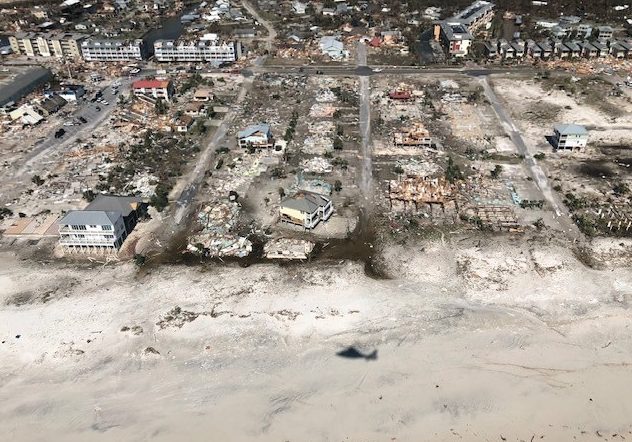Title Page
Prop A Could Bring Unprecedented Investment in Affordable Housing in Austin. KUT.
Introduction
Here's How That One Mexico Beach House Survived Hurricane Michael. Weather Channel.
"Lackey didn't say how much he and King spent to build the home, but he did disclose that they spent 15 to 20 percent more to go above and beyond standard Florida building codes."
Executive Summary
Homeownership is often touted as a reliable pathway to wealth building and arguments about racial inequality often present increased access to homeownership as a way to narrow persistent wealth gaps. But that narrative has increasingly been complicated by studies like Pew's Stateline analysis of home values in recent years as they relate to area demographics. The analysis found that "In nearly a fifth of the ZIP codes where most homeowners are black, home values have decreased since 2000, compared with only 2 percent of ZIP codes where black homeowners are not the majority." Importantly, the trend held for both wealthy and not wealthy largely black zip codes.
“There really is a cautionary note here,” Sandra Newman, a professor of public policy at Johns Hopkins University, told Stateline. “Becoming a homeowner, or at least a first-time homebuyer, may not be the right approach for all households,” said Newman. “On black first-time buyers vs. renting: we’re pretty decisive, they would have done better had they stayed renters.”
The analysis shows also found that there were some cases where gentrification appeared to drive increases in majority-black zip codes. So while 12 percent of zip codes where black residents were not the majority saw home values double in the study period, 17 percent of majority-black zip codes saw those gains.
It's also worth considering how value gets produced in the first place. A recent study of appraisal practices in the Houston area, for example, found that homes in neighborhoods with higher percentages of black residents were consistently undervalued even when things like, income, crime and school quality were held equal.
Conclusion
"Over the last half-century, the Netherlands’ coastline has been completely transformed through massive feats of engineering aimed at keeping its major cities dry," writes Billy Fleming in CityLab. And after each major flood event, the model is discussed anew with the message seeming to be: "The Dutch are coming to save us, if only we’d let them."
But Fleming, the Wilks Family Director of the Ian L. McHarg Center at the University of Pennsylvania School of Design, isn't so sure:
"Although the United States has much to learn from the rest of the world’s approach to climate change, it’s not clear how or why we should expect the Dutch approach to adaptation to translate so readily to our shores. There are major, perhaps irreconcilable differences in the nature of the flood risk, the physical and economic geography, the political systems and institutions of each nation."

